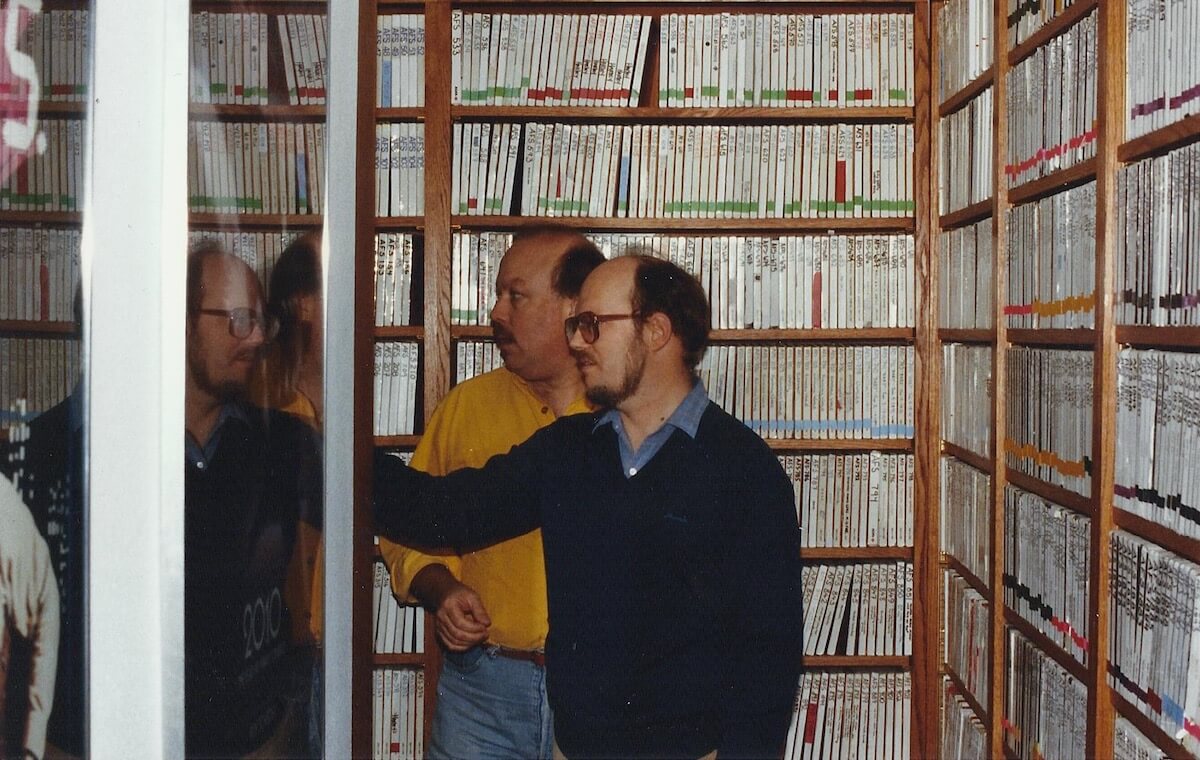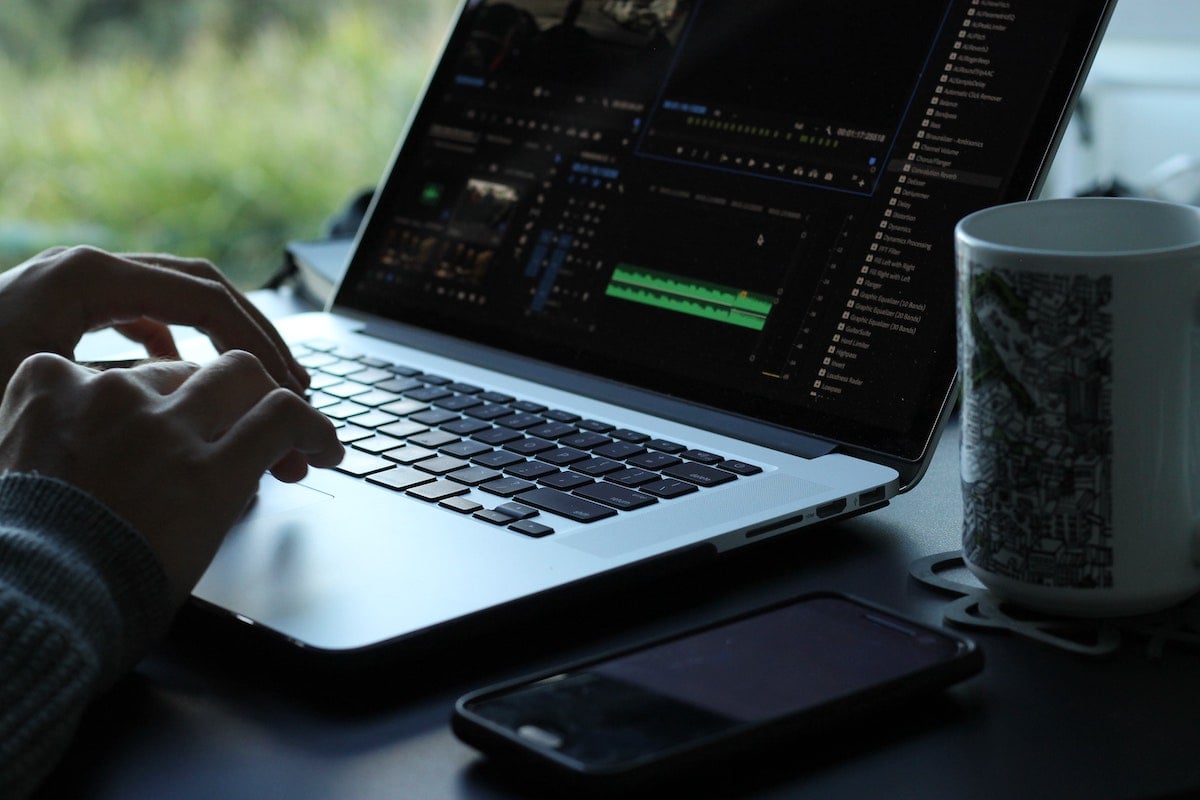What is sound effects licensing, and why is it important?
We often hear from current and potential customers – creative directors for big production companies, freelance sound designers, and everyone in between – asking us to clarify what sound effects licensing is, why it’s necessary, and who benefits from it. In this article, we’ll explore all of these topics.
Simply put, when you purchase a sound effects library, or even just a single sound, what you’re actually buying is the license to use that sound in your work. Sound effects licensing serves as legal proof that every element of sound in your final deliverable has been properly acquired and that the creators and rights holders have been properly compensated. Much like ensuring music, images, and stock footage are legally cleared for use, the end result is peace of mind that you’re fully covered.
Everyone agrees that music, photos, and stock footage are highly artistic, yet sound effects are often overlooked in the production workflow (and budget) as compared to music and visual media. Recordists and sound designers around the world create millions of sound effects that are used by media professionals. Their work is a part of a creative industry that often works in the shadows; their creations are critical elements of the immersive experiences that drive our favorite movies, TV shows, video games, and commercials, plus in-person experiences at events, theme parks, and even shopping malls.
The quality and diversity of professional sound effects libraries make it easier, faster, and more affordable for studios and creators to achieve premium quality, immersive experiences. To keep this system in operation, industry professionals simply need to follow agreed upon best practices without taking shortcuts. There’s a thin line between being resourceful and stepping beyond fair usage, and while an editor’s intention may not be malicious, unlicensed activities expose their work and their company to unwanted liability. This is why it’s important to know what is legal and what is not when it comes to SFX usage.
Let’s begin a primer on how the sound effects industry began, how it evolved into what it is today, and the difference between licensed and unlicensed use.
When you purchase a sound effects library, or even just a single sound, what you’re actually buying is the license to use that sound in your work.

PSE Library Partner and Oscar®-winner Richard L. Anderson (Raiders of the Lost Ark) browsing the many shelves of tapes constituting a post production studio's sound effects library the '80s
From Wood Blocks, Mallets, and Rocks to Search-Optimized Digital Cloud Libraries
Sound effects and Foley date back to the golden age of radio and silent film. As recording technology evolved, it became easier for studios to record and save their best sound effects for easy reuse in future productions. Each studio would typically have their own libraries and it was likely common for sound designers to trade tapes.
As Hollywood-style productions grew in size, scope and ambition, many production cycles and budgets shrank. At the same time, new mediums entered the industry, including video games, virtual reality, and podcasts. In this rapidly changing landscape, bespoke recordings for all sound effects needs were no longer a viable option in some cases.
As studios grew more competitive, with fewer opportunities to create bespoke recordings, it became more and more necessary (and often a competitive advantage) for sound artists to bring their own tools to the party – and that includes a complete sound effects library to tackle any sonic challenge. This need for an easier, more organized, consistent, and professional sounding solution has given rise to a robust professional sound effects industry, where specialists have created and brought to market millions of sound files to support just about every imaginable creative need.
The delivery of professional sound effects libraries steadily evolved alongside related technologies, with reel-to-reel tapes giving way to DATs, and then CDs/DVDs. Nowadays, of course, everything is digital, either stored locally on a hard drive, downloadable, or accessible on-demand in the cloud. Companies like Pro Sound Effects (PSE) make it their mission to help creators (sound artists, video editors, and beyond) find and use the right sounds for any project. PSE works with film students at the start of their careers, award-winning professionals at the top of their game, and everyone between.
Studios and production companies pay licensing fees to access specific PSE libraries, bundles, or the entire sound effects database. A portion of those fees are shared with the artists who originally recorded the sounds to compensate for their work, as well as the personnel it takes to develop, edit, categorize, and organize the libraries so that editors can quickly search through thousands of options to find exactly what they’re looking for. Importantly, license fees also cover legal, insurance, and all of the business machinations required to ensure the line of legal protections for parties on all sides remains firmly intact.
Companies like Pro Sound Effects make it their mission to help creators find and use the right sounds for any project.

Recordist Colin Hart capturing sounds for the Gators library
Supporting a Sustainable Production Ecosystem
Production facilities today typically license a comprehensive, general sound library covering the entire sonic spectrum, with multi-user agreements to license all employees who will use the library to create finished pieces of art, such as TV episodes, commercials, feature films, or video games. The final product is called a synchronized work, meaning that the sound effects files, alongside dialogue and music, are synced to picture in a final edit. Under this agreement, clients are allowed to exploit these synchronized licensee works as desired, such as broadcast, streaming, or theatrical distribution.
It’s important to remember that the sound effects used in synchronized works are still intellectual property. Copyright for these effects is owned by a stakeholder, whether it's the original recordist of the material, the person who pointed the microphone at an object in the field or created the sound synthetically in their workstation, or the company that published the sound.
For example, if a company hires an independent contractor to work on a project, this freelancer is free to use their own licensed libraries, and any work the company distributes containing those synchronized/locked sound effects should be covered. If any of the freelancer’s files wind up on the company’s server after the project is complete, the company is not licensed to use them on other projects. Similarly, should a licensed editor at your company give out their SFX library password to an outside party not covered under the multi-user agreement, that resulting work would be considered illegal.
For companies, teams, schools, or individuals creating professional work, having a fully licensed sound effects library is a cost of doing business just like paying the electric bill and acquiring and maintaining hardware. While it may be tempting to share passwords or swap files, there are inherent risks for doing so:
- Professional reputation: Word travels fast; if a project you’re involved in becomes compromised due to a rights dispute and it’s your fault, that could affect your ability to get hired in the future.
- Self-respect and peace of mind: Students and amateur filmmakers are scrappy and resourceful by nature, but when you’re a professional, you are expected to uphold the highest industry standards. Doing so relieves the pressure of “getting caught” because the work you do is properly licensed. Having a legitimate toolkit also fosters a sense of pride.
- Legal action: The technology for rights holders to monitor what is being put out on the internet and over the airwaves is constantly improving. If you’re caught sharing sounds online, a DMCA takedown letter can be expected at the very least, and when necessary, rights holders could sue for injunctive relief. PSE’s license agreement essentially serves as a “chain of title” letter to cover clients from any liability or claims that may arise from compliant sound effects usage.
- Compromised creative product: Outdated libraries, free software, and bootlegged sources typically limit one’s creative range. The willingness of an artist to go down the road of low-quality or bootlegged toolsets is often indicative of an artist’s mindset, if not their skill set. This, in turn, will compromise the quality of the finished product. Why settle for “good enough” when the right sounds are available?
- Longevity and health of the creative arts: Most importantly, if the sound artists creating professional sound effects libraries can not be compensated for the investment it takes to produce and distribute world-class libraries, this important chain of creative resources would be jeopardized. Should this resource vanish, the burden to create bespoke products would return to production companies, or as we’ve highlighted, editors might be thrown to the wolves, having to rely solely upon those resources they can get their hands on, without regard to quality or legality.
Fully licensed libraries allow you and your clients to work worry-free, knowing you’ve delivered the best product to your clients, supported the artists that made your job easier, and removed any liability for you, your clients, and even your clients’ clients from the equation.

Closing Thoughts
We hope this blog has made the context and importance of proper sound effects licensing clear, but if not, here’s a quick and candid summation.
If you’re a pro working in the industry at industry standards, professional sound effects libraries are an investment – one you can build into your fees and client budgets. Fully licensed libraries allow you and your clients to work worry-free, knowing you’ve delivered the best product to your clients, supported the artists that made your job easier, and removed any liability for you, your clients, and even your clients’ clients from the equation.
Sound effects recordists are part of the same food chain that pays your rent or mortgage, so if you devalue or pirate sound effects libraries, you're doing yourself and all of your peers a disservice. When you pay for and adhere to your license, you're confirming the value of the entire ecosystem of which everyone plays an invaluable role while declaring to yourself and your industry that your company is a legitimate and professional operation.
Make sure your team is covered and creating the best sound possible.












